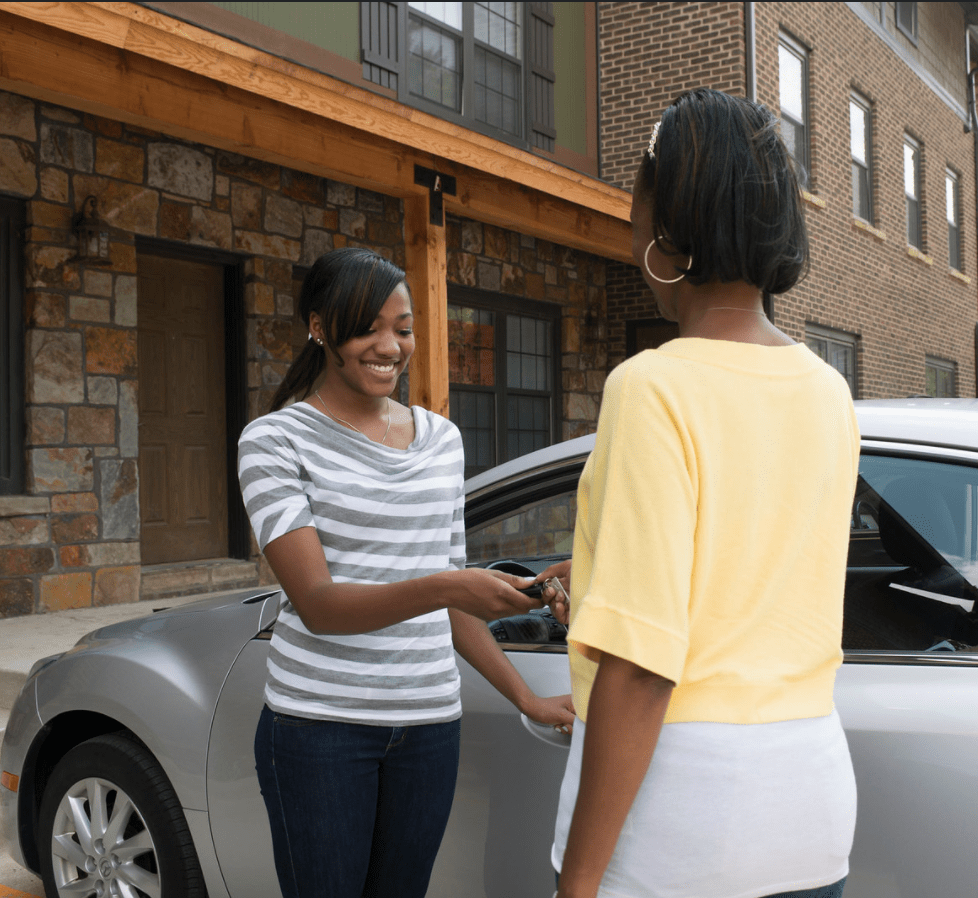To get a driver's license in Georgia during COVID-19, you don't need to prove that you can safely operate a car.
Gov. Brian Kemp issued an executive order last week, waiving the on-road driving test requirement for obtaining a license, citing the impossibility of a testing official and a novice drivers maintaining a healthy distance inside a car. Would-be drivers still have to pass a written exam, and drivers under 18 must have held a learner's permit for at least one year with no violations.
Most other states are simply requiring new drivers to wait until shutdown orders are lifted to take their tests and get their licenses.
The governor's move was widely condemned by street safety advocates when the news went viral on Twitter this week. Some remarked that right now — during a documented speeding epidemic due to low traffic volumes — is about the worst time to throw untested drivers onto our roads, especially since new drivers are undoubtedly the most dangerous motorists.
"As parents and as advocates, we know putting a teen behind the wheel means putting them in a position to make snap decisions that have real impacts — not just for themselves but for people around them, including people walking, biking, scooting, in wheelchairs as well as driving," said Rebecca Serna, executive director of the Atlanta Bicycle Coalition. "While we support the desire not to put instructors at risk, if we want to protect public safety, a better policy would be to stop issuing driver's licenses until it's safe to take the test again."
Others noted the hypocrisy of the fact that Georgia had reversed its shelter-in-place order and allowed many businesses to re-open effective April 24 — but on April 23, decided to take more precautions with the health of state employees that usually administer driver's tests.
So the extremely low bar to let someone operate a 3000+ lb machine on public space has been removed for the demographic by far most likely to cause a wreck. What could go wrong? 🤦♂️
— Alex K (@AlexWithAK) April 30, 2020
Georgia's announcement is just the latest topic of hot debate in the perennial conversation about how rigidly drivers are tested before authorities declare them safe to get behind the wheel.
The Peach State appears to be the first to allow new drivers to obtain a license without a road test since such exams became the national standard in 1959, but the state has never required anyone to take a driver's education course — and 27 other states don't either.
Such policies have had disastrous results in communities across America. First-time drivers who had not completed driver's education were 75 percent more likely to get a traffic ticket, 16 percent more likely to be involved in a crash, and 24 percent more likely to be injured or killed in those crashes, a 2015 study showed.
States are also allowed to self-determine how many practice hours new drivers must log prior to taking their tests — those requirements range from zero to 100 — and whether a professional or your legal guardian may supervise those hours.
What is a safe driver, really?
So why are the requirements to prove yourself a "safe" driver so different in every state in America? There's no clear answer — but the fact that that we even have to ask the question highlights how deeply entrenched car-culture is.
Put it this way: in a perfect world, people would not have to drive a car to meet their basic needs, because they'd have access to far safer transportation alternatives.
Unfortunately, the car is a necessity for daily life in far too many places — and that uncomfortable truth requires each state to perform its own, highly subjective calculus between the safety of all its road users and the mobility of those who are forced to, or choose to, drive. Strict licensing requirements are essential in any community, but requirements that are too strict can be punishing to the car-dependent poor.
Take driver's education: it saves lives, but many under-funded public schools don't offer it; private lessons are a good substitute, but they're expensive — and good luck physically getting there if mom works multiple jobs and doesn't have time to get you to class, and there's no transit network to get there on your own; online driver's education sounds like a good alternative, but 35 percent of low-income Americans and 31 percent of all rural residences don't have access to any form of broadband internet. And during COVID-19, the public library and your public school are closed, too, so there's no chance of getting it there.
But our answer can't be simply to let scores of untrained — and even untested — drivers take the wheel and hope for the best. Doing so not only makes streets more dangerous for everyone, but in combination with underfunded transit, it saddles the poor with a financial burden of car ownership that they often can't afford.
The rural poor, in particular, have both the nation's highest rates of poverty and the highest average annual vehicle miles travelled. Taken together, that means that rural families spend a staggering average of 20 percent of their income on transportation, compared to just 13 percent among urban families with access to other ways of getting around.
We could make our streets safer for everyone and take the albatross of car ownership off the necks of the poor – but only if we radically expand everyone's access to sustainable transportation options that are affordable to all.
Until then, it will be up to states like Georgia to, essentially, pick between the safety of everyone, and mobility of drivers.






